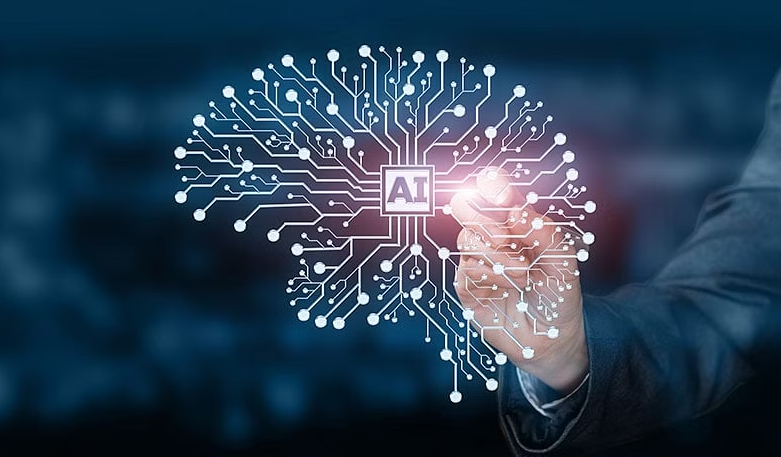Artificial Intelligence (AI) has rapidly become one of the most talked about topics in today’s world. With its ability to automate repetitive tasks, analyze vast amounts of data, and make predictions, it is no surprise that AI is being integrated into various industries, from healthcare to finance. It has already made a significant impact on how we live, work and communicate. However, with advancements in AI technology, also comes a wave of uncertainty and concerns about its potential to disrupt the job market and change the way we live. The launch of ChatGPT, a simple text-based model, has been a game-changer in the world of AI. It broke all records by crossing one million users in just five days, making it clear that the general public is fascinated by the capabilities of AI. This model has been a blessing for students and researchers, helping them in their regular work. Additionally, it has also piqued the interest of common people, who have started to spend more time using it and understanding its uses.
AI is a rapidly growing field that has the potential to revolutionize the way we live and work. However, with the rapid development of AI technology comes a range of concerns that have been raised by experts, activists, and industry professionals alike. One of the main concerns about AI is its potential impact on employment. As AI-powered machines and algorithms become increasingly sophisticated, they are able to perform many of the tasks that were previously done by human workers. This has led to fears that AI will lead to widespread job losses, particularly in fields like manufacturing and data analysis. Some experts have even predicted that AI will lead to mass unemployment, with machines taking over jobs that were once done by human workers.
Another concern about AI is its potential impact on privacy and security. As AI systems become more powerful and more widely used, they will have access to an increasing amount of data about people and organizations. This has raised concerns about the potential misuse of this data, and the risk of AI systems being used for malicious purposes such as surveillance and cyber-attacks. A third concern about AI is its potential impact on society as a whole. Some experts have raised concerns about the ethical and moral implications of AI, arguing that machines and algorithms may not be capable of making the same kinds of ethical and moral judgments as human beings. Others have pointed out that AI systems may perpetuate existing biases and inequalities in society, rather than helping to reduce them.
Despite these concerns, it is important to recognize that AI also has the potential to be a hugely positive force for humanity. AI can help us to solve some of the world’s most pressing problems, such as climate change and poverty, by providing us with new tools and insights. It can also help us to improve our lives in countless ways, by automating mundane tasks and helping us to make better decisions. The benefits of AI are numerous, and include improved efficiency, increased accuracy, and the ability to automate repetitive tasks. One of the most significant potentials of AI is its ability to analyze large amounts of data, which can help organizations make better decisions. For example, AI algorithms can be used to identify patterns in medical images, analyze financial data, and detect fraud. Additionally, AI can be used to create more personalized experiences for customers and to improve the accuracy of weather forecasts and other predictions.
Another potential of AI is its ability to enhance human capabilities. For example, AI-powered robots and drones can be used to perform dangerous tasks, such as exploring deep sea or outer space, or to help people with disabilities. Additionally, AI-powered assistants can help people with daily tasks, such as scheduling and reminder. AI also has the potential to create new jobs and industries. As AI becomes more prevalent, there will be a growing demand for experts in the field, such as data scientists, AI engineers, and AI designers. Additionally, companies will need to invest in AI infrastructure, which will create jobs in areas such as data storage, data management, and network security.
In the future, AI will become an integral part of our daily lives. It will be used to make our homes and cities smarter and more efficient. It will improve the quality of our healthcare and make it more affordable. It will make transportation safer and more efficient. It will help us to make better decisions and to understand the world around us better. However, it’s important to remember that the potential of AI will only be realized if it is developed and used responsibly. It is important to consider the ethical and societal implications of AI, and to ensure that it is used to benefit humanity as a whole. It’s also important to ensure that the development of AI is inclusive and benefits all people, regardless of their background or location. Ultimately, it is up to us as a society to ensure that the development and use of AI is guided by our shared values and goals, and that it is used to improve the lives of all people. This will require a commitment to ongoing dialogue and engagement, as well as a willingness to adapt and evolve as we learn more about the opportunities and challenges posed by this transformative technology.
AI has the power to change the world in ways we can’t even imagine. It has already begun to revolutionize various industries, and this is only the beginning. While there are concerns about the impact of AI on certain jobs, it is important to remember that AI will also create new opportunities for growth and advancement. As AI continues to advance, it will become increasingly important for individuals to learn new skills related to AI in order to remain competitive in the job market.
(The Author is Assistant Professor, Dept. Of Information Technology, S.P College Srinagar)









